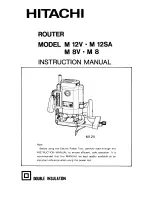
R E V I E W D R A F T # 1 — C I S C O C O N F I D E N T I A L
A-41
Cisco WRP500 Administration Guide
Appendix A Advanced Voice Fields
User page
Voice tab > Line page >
FXS Port Polarity Configuration section
User page
You can use this page to configure the user settings. This page includes the following sections:
•
“Call Forward Settings section” section on page A-42
•
“Selective Call Forward Settings section” section on page A-42
•
“Speed Dial Settings section” section on page A-43
•
“Supplementary Service Settings section” section on page A-43
•
“Distinctive Ring Settings section” section on page A-45
Enable IP Dialing
Enable or disable IP dialing.
If IP dialing is enabled, one can dial [user-id@]a.b.c.d[:port], where
‘@’, ‘.’, and ‘:’ are dialed by entering *, user-id must be numeric
(like a phone number) and a, b, c, d must be between 0 and 255, and
port must be larger than 255. If port is not given, 5060 is used. Port
and User-Id are optional. If the user-id portion matches a pattern in
the dial plan, then it is interpreted as a regular phone number
according to the dial plan. The INVITE message, however, is still
sent to the outbound proxy if it is enabled.
The default is
no
.
Emergency Number
Comma separated list of emergency number patterns. If outbound call
matches one of the pattern, the WRP500 will disable hook flash event
handling. The condition is restored to normal after the phone is on-hook.
Blank signifies no emergency number. Maximum number length is 63
characters.
The default is blank.
Idle Polarity
Polarity before a call is connected: Forward or Reverse.
The default is
Forward
.
Caller Conn Polarity
Polarity after an outbound call is connected: Forward or Reverse.
The default is
Forward
.
Callee Conn Polarity
Polarity after an inbound call is connected: Forward or Reverse.
The default is
Forward
.
















































